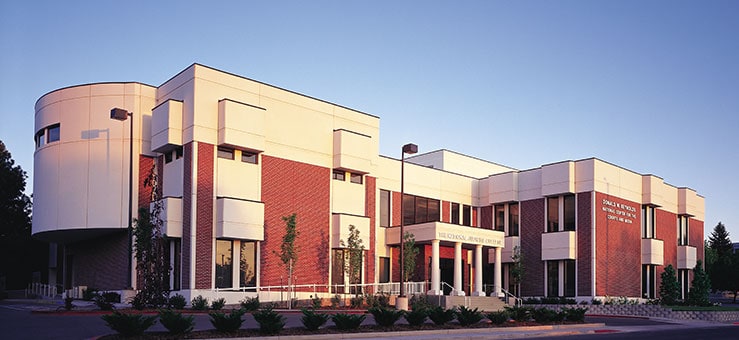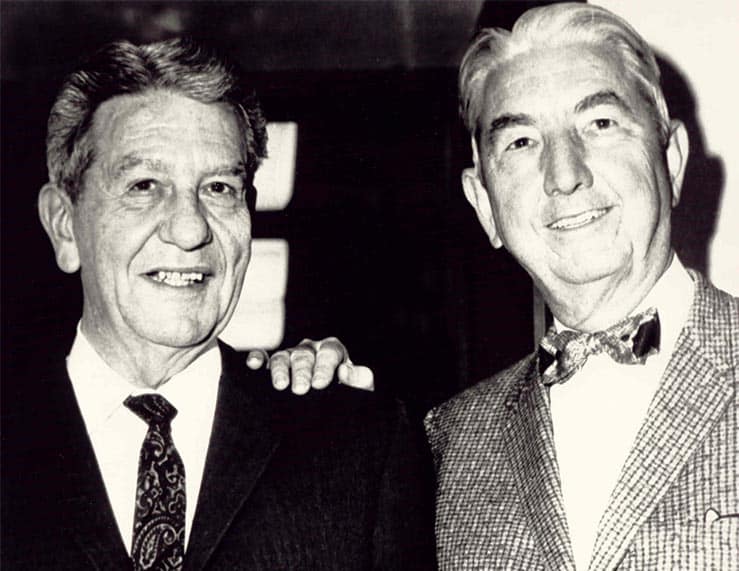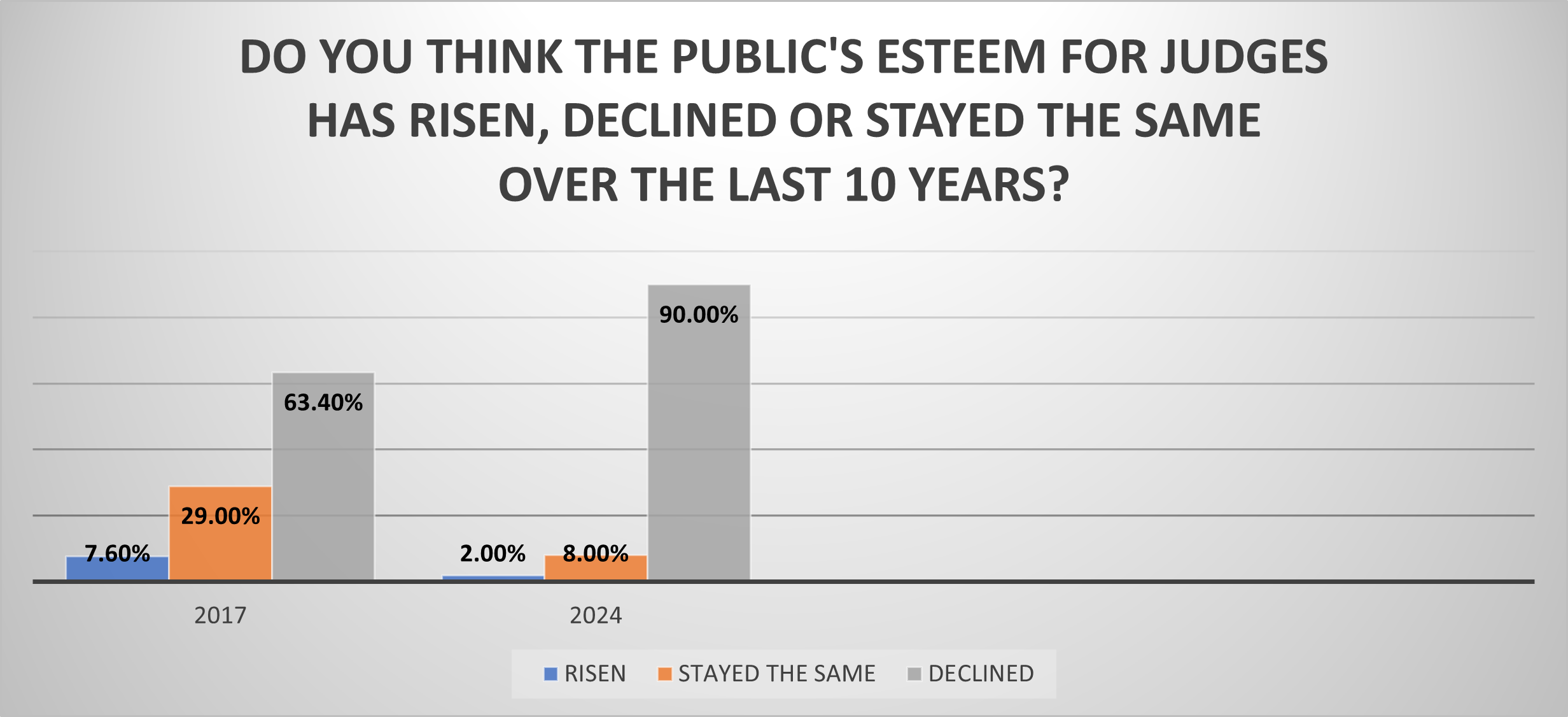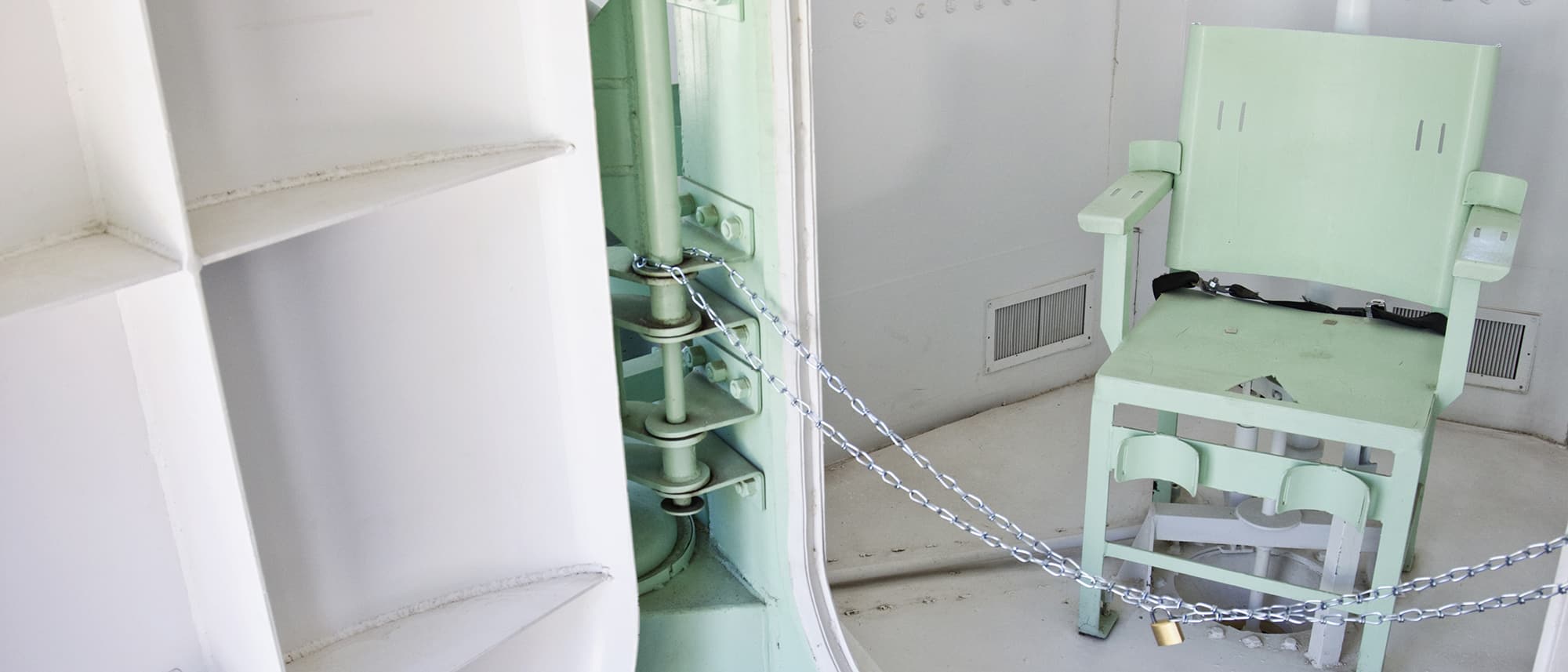

A Legacy of Learning
 The National Judicial College building on the University of Nevada, Reno campus. An expansion in 1999 added the Model Courtroom, computer lab, breakout rooms, and additional classrooms.
The National Judicial College building on the University of Nevada, Reno campus. An expansion in 1999 added the Model Courtroom, computer lab, breakout rooms, and additional classrooms.
For nearly 60 years, The National Judicial College has remained the national leader in judicial education. The first to offer programs to judges nationwide, the NJC continues to work with the judiciary to improve productivity, challenge current perceptions of justice and inspire judges to achieve judicial excellence. The College serves as the one place where judges from across the nation and around the world can meet to improve the delivery of justice and advance the rule of law through a disciplined process of professional study and collegial dialogue. By offering an average of 100 courses/programs annually with more than 8,000 judges attending from all 50 states, U.S. territories and more than 150 countries, the NJC seeks to further its mission of education, innovation and advancing justice. With the growth of online education, more than 10,000 judicial officers are accessing 30 to 50 web events each year.
 In 1963, U.S. Supreme Court Justice Tom C. Clark (right) chaired the Joint Committee on the More Effective Administration of Justice, which recommended that a national judicial college be created. It originally opened in Boulder, Colorado. However, at the urging of Judge Thomas Craven (left), the NJC found its home in Reno in 1964.
In 1963, U.S. Supreme Court Justice Tom C. Clark (right) chaired the Joint Committee on the More Effective Administration of Justice, which recommended that a national judicial college be created. It originally opened in Boulder, Colorado. However, at the urging of Judge Thomas Craven (left), the NJC found its home in Reno in 1964.
In 1961, the American Bar Association joined with the American Judicature Society and the Institute of Judicial Administration to organize the Joint Committee for the Effective Administration of Justice. Supreme Court Justice Tom C. Clark served as chair along with Professor Ernest C. Friesen (the NJC’s first dean) who played a key role. Among the Committee’s recommendations was the need to create an entity to provide judicial education.
The College’s board first met in 1963. In 1964, with operating dollars provided by the W. K. Kellogg Foundation of Battle Creek, Michigan, the National College of State Trial Judges, as it was then known, held its first session at the University of Colorado at Boulder for judges seeking further insight into their profession . The need was evident with more than 300 judges applying for the 83 available seats. In 1965, with additional funding from the Max C. Fleischmann Foundation and the State of Nevada, the College moved its permanent academic home to the University of Nevada, Reno campus. The College’s first building, dedicated on the Reno campus in 1972, was built with funds from the Fleischmann Foundation.
The State of Nevada, U.S. Department of Justice and the University of Nevada, Reno continue to provide ongoing financial support. Corporations, foundations, governmental units and individuals have also provided funding for general support and special projects through the years. The NJC, originally an entity within the American Bar Association, became a Nevada not-for-profit (501)(c)(3) educational corporation on January 1, 1978. The College has an appointed 21-member Board of Trustees which includes members appointed by the ABA’ s Board of Governors. Trustees are elected for three-year terms with a three-term limit. The Board of Trustees sets general policy for the College and employs the president, who serves as chief executive officer.

This month’s one-question survey* of NJC alumni asked, “How is 2024 shaping up for you and your court?�...

RENO, NV (PNS) – As they eye their inaugural football season this fall, the Gaveliers have question marks...

RENO, Nev. (March 8, 2024) — In what may reflect a devastating blow to the morale of the judiciary, 9 out...

In what may reflect a devastating blow to the morale of the judiciary, 9 out of 10 judges believe the publi...

RENO, Nev. (Jan. 26, 2024) — The nation’s oldest, largest and most widely attended school for judges �...